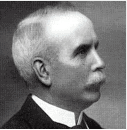The Light Arms Brigade
Kishor, the IT director, looked up from his notes. “We don’t have many people working for us here” he said, and flung the file on his desk with some exasperation.
I had learned rapidly, in my new career as an underling, never to contradict anyone senior to me. Instead, I mutely stared out over the vast sea of cubicles in the huge open-plan office, and scratched my head in puzzlement.
“I suspect it depends on your definition of the word many” I suggested placatingly.
“No it effing doesn’t” he spat out “it depends on your definition of the word work.”
I had come to the IT department of a major London Bank as a refugee, having run my own IT business for some years, and I was enjoying the increased pay and tranquillity. It had, however, come as a complete surprise to find myself surrounded by members of the IT staff who didn’t do a stroke of useful work all day, and became animated only when the magical hour of 5PM approached.
I’d never come across such a thing before. In the IT world of the SMEs, we were all caught up in the never-ending struggle to survive. We worked all the hours we could in order to deal with impossible workloads. I had to agree with Kishor that we had more than our fair share of idlers in the staff.
We called them the light arms (low calibre, small bore, needed to be fired). One such character confessed to me how he was able to catch up on his sleep while at work. His amazing talent was being able to doze off with his eyes open, whilst staring at the screen and tapping the CAPS key.
If resting after the exertions of ones night-life wasn’t to your taste, then there were other diversions to while away the time. The Finance Director happened to be looking through the small-ads in the local paper and came across a phone-number that looked curiously familiar. It was for a professional accountant. Puzzled, he phoned the number and was put through to one of his managers a few desks away who was running a firm of accountants ‘on the side’.
Therefore, I sympathised with Kishor, and helped him to refine his list of the ‘light arms’ members of the department. It wasn’t hard to do, as the programmers leaked like sieves on the subject of the ‘time-servers’. However, it seemed to me a bleak and hopeless task to motivate such people, and I knew immediately how difficult it would be to sack them. I felt that the only way forward was to try to encourage these people by a mixture of flattery and jobrole-change.
As it happened, Kishor never asked for my advice, but I suspected he had a plan. Kishor always had a plan. For some time before I came to work for him, I’d heard of his exploits, and his cunning. I once met him in the course of business, when he first started out in IT; a young serious-minded Systems Analyst, working for a software house. He’d come a long way since.
Within a few days, the department secretary announced that some of the ‘high fliers’ in the department were to go on a training course at the company’s expense, to learn C#. Various people were picked to go on this course, and there were dark mutterings of discontent from some of the excluded technical die-hards, mainly about how they’d had to learn the language themselves, in the evenings. Kishor told the few managers who protested to him at the choice of several ‘light arms’ candidates that it was a way of inspiring them to change their attitude to work, giving them a fresh start with a different technology. The C# course came and went. As I suspected, I didn’t need to arrange cover for any of the participants in my department. Neither did anyone else.
Soon afterwards, the participants started to hand in their notice. The trickle increased to a rush, and it soon became apparent that they had all been head-hunted by a rival bank, The Imperial Bank (not it’s real name).
Kishor conducted a stormy staff meeting soon afterwards. The gossip had swept the city that the Imperial Bank had scooped up the entire group of high-fliers from our department. Evidently, a list of the participants in the course had somehow got into the hands of the Imperial Bank. Kishor tearfully railed at the iniquity of our rivals and we all shook our heads in sorrow at the disloyalty of our staff, and the chicanery of the person who had leaked the list. We were particularly incensed that we’d trained them in valuable skills at our company’s expense.
When the extent of the duplicity became apparent, we became objects of pity in the wider world of IT. It even got a mention in one of the computer papers that we’d lost an entire ‘year’ of graduate entrants to the other bank.
Still mulling over this dramatic turn of events, I retreated to one of our favored City Pubs, where I was sipping a pint of fine ale, and enduring a certain amount of good-natured ribbing from one of the managers from the Imperial Bank’s IT department.
It was at this exact moment that it dawned on me what Kishor had done. I suddenly recalled, with complete clarity, walking through the City streets one evening that summer, just after the training course was announced, and catching sight of Kishor in this very same establishment. The grey-suited customers spilled out into the street clutching their beer-glasses and talking loudly. In the thick of the mêlée was Kishor, surrounded by IT people. Here and there, like jackals around a campsite, I had noted the sharp attire and haircut that marked out an IT employment agent.
Kishor had ‘accidentally’ let slip to one of these IT agents the fact that he was sending all his most talented staff on a training course, knowing full well that the agent would subsequently inveigle the list from one of the more ‘malleable’ of the light arms candidates. From there, it was but a short hop for the list, into the hands of the agent’s best client – the Imperial Bank! I smiled in awe and wonder at the subtlety of Kishor’s plan, and its implications. Suddenly, the pint of Landlord Bitter in my hand, bought for me by an Imperial Bank manager whose conscience had been troubling him, tasted twice as sweet.
After a few months, of course, the IT department of the Imperial Bank realized that all was not quite as they’d hoped. They’d expected a swift recouping of the expense of their golden handshaking. It didn’t happen like that and they began to detect the deadening lethargy of their new recruits. I was even drawn to one side by a senior manager at the Imperial Bank and asked what on earth our low-fliers were like. I merely smiled and said that so much employee productivity was bound up in the whole ethos of the workplace and our skilled management techniques.
Not only had Kishor cleared out all the dead wood from our department but he had transferred it to the rival bank in such a way as to inflict maximum expense and damage to them. We had, as well, all emerged as the innocent victims. It was at that point that I realised I would never make it to the top rank of IT managers. Something else was necessary; a talent I didn’t possess. Kishor had it.
In subsequent jobs, I learned quickly that the light arms brigade tend to nestle in the crooks and crannies of all large international enterprises and government departments. In one particularly memorable case, I spent three months in a government department working on a database audit, and sharing a desk with a Systems Analyst who was running a society magazine for Rural Field Sports. He was supposed to be maintaining several ‘legacy systems’ but this took only the occasional five minutes out of his busy life amongst the ferrets, grouse and salmon.
It’s at these times that I remember the lessons I learned from Kishor. His talent, and his encyclopaedic knowledge of the goings-on in all the City of London IT departments, had seen him rise from the shy, serious programmer I’d first known, to the youngest IT director ever in the City of London. It was comforting to me to reflect that at least some of the knowledge that had driven him there had been gained in one of our beloved City of London pubs, where IT people congregated, and where Kishor gathered intelligence over a glass of orange juice.





Load comments